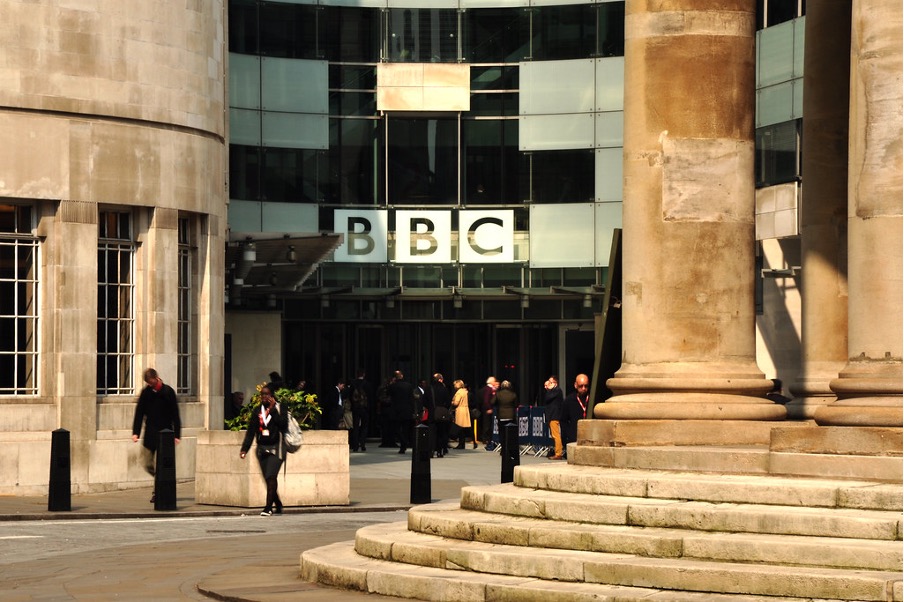
The recently appointed Culture Secretary, Nadine Dorries, has announced a plan to radically transform one of Britain’s greatest institutions. The timing of the announcement conveniently distracts media attention away from ‘Partygate’ but is nevertheless substantial in reform. The license fee is to be frozen at £159 until 2024 and eventually abolished in 2027, with alternative funding solutions considered. The result will be a reduction in the BBC’s quality and with it, a diminishing of Britain’s standing in the world.
The argument for reform — made by Dorries and others — is that the BBC has somehow been overrun by woke lefties and is intrinsically biased against right-wingers. However, just like all supposed culture war issues, the debate about the BBC is in fact the same economic argument that has raged for decades but disguised by a cloak of cultural division. The Thatcherites who wish to abolish the Beeb seek to do so to realise their free-market ambitions and establish a powerful right-wing broadcaster like GB News. They see an expensive public-run broadcaster as completely unnecessary.
Thankfully, up until recently, wiser heads have prevailed within the Conservative Party. The last remnant of ‘Wet Conservative’ thought to have survived in an ever rightward shifting party. This encompassing the idea that there are certain institutions that cannot be left for the market to takeover. In the seventies, it was various public companies like British Airways that many Tories sought to defend. In the eighties, despite a tidal wave of privatisation, Thatcher proclaimed that she would vow to keep the Railways publicly run as they were vital to national infrastructure. By the nineties, these too had been cut from the public books. Cameron took this a step further once he reached No. 10, privatising the Royal Mail even though Tories — including Thatcher — were deeply sceptical about “[p]rivatising [t]he Queen’s [h]ead”.
With so much of British industry in private ownership, it would seem there is little frontier for Conservative free-marketeers to conquer. Prisons? Libraries? Roads? Even the most ardent right-wingers have their limits. The BBC though, lies increasingly within those limits, and it is thus the role of sounder minds in the Tory Party to renew their one-nationism and defend it. Just like the battles fought by Ted Heath, Conservatives need to fight the radicals of their party to conserve one of Britain’s finest public institutions. The BBC is a crucial part of the fabric of the nation and ought to be protected.
Not only does the Beeb provide a plethora of important content to a domestic audience — including entertainment, radio, news, and educational materials — but its international aspect is what makes it so powerful. The government’s 2021 ‘Integrated Review of Security, Defence, Development and Foreign Policy’ talks of how the BBC is one of the world’s most influential instruments of soft power. It states that “[t]he BBC is the most trusted broadcaster worldwide, reaching 468m people every week, in 42 languages.” Any right-minded Conservative ought to appreciate this and try to support the broadcaster, not help annihilate it. However, right-minded Conservatives are hard to come by these days. This wing of the party has been cut back so far that it must pick and choose its battles wisely. This is one of those battles because they have the most powerful weapon in politics on their side: public support.
This constructed culture war narrative is one which builders like Dorries will likely regret assembling, as the BBC is perceived by voters not as metropolitan or out-of-touch but as a trusted friend, a steady constant, and a patriotic icon. The general public have a great deal of trust in the BBC and don’t wish to see it hurt. They know it is something which is by no means perfect but that it is an institution that must be conserved for future generations nonetheless. The defence of the Beeb from right-wing reactionaries is a valiant fight and an important tenet of British conservatism — one which has evidently been abandoned.
Featured Image: ‘It’s the BBC‘ by Matt Cornock from Flickr is licensed under CC BY 4.0 (link to license deed).



Average Rating